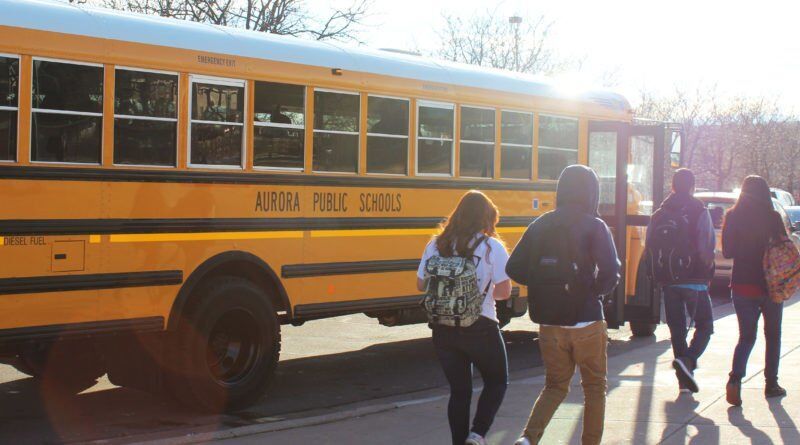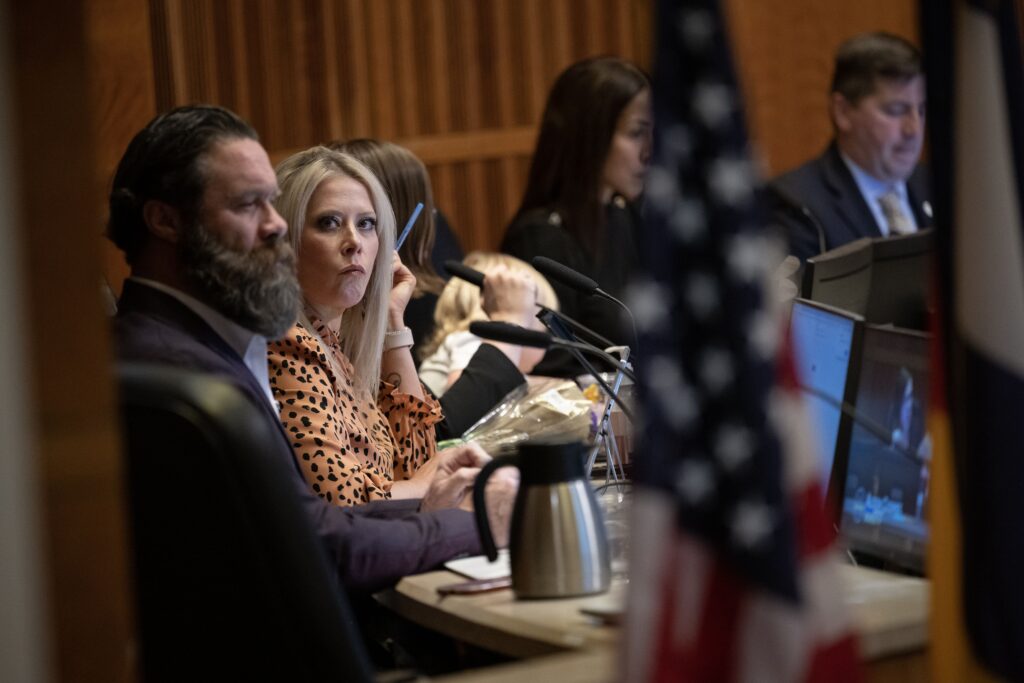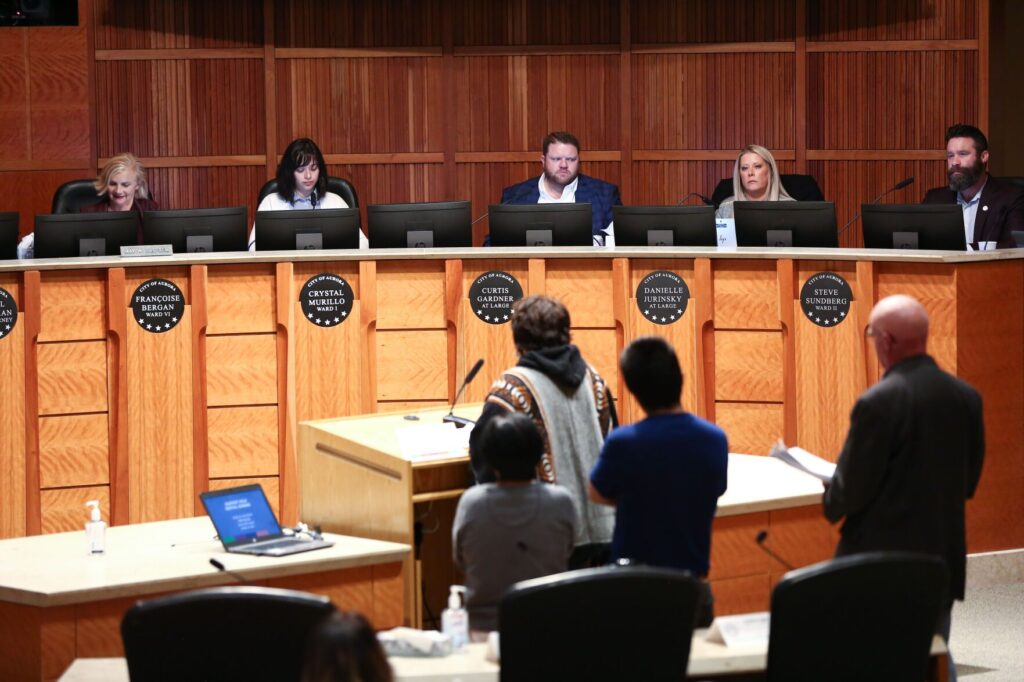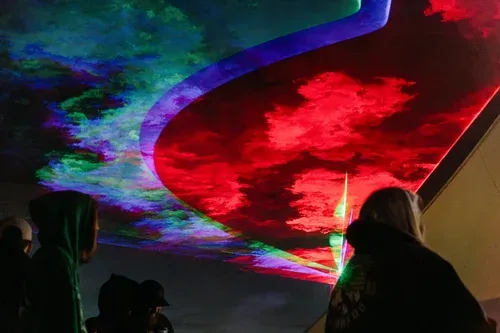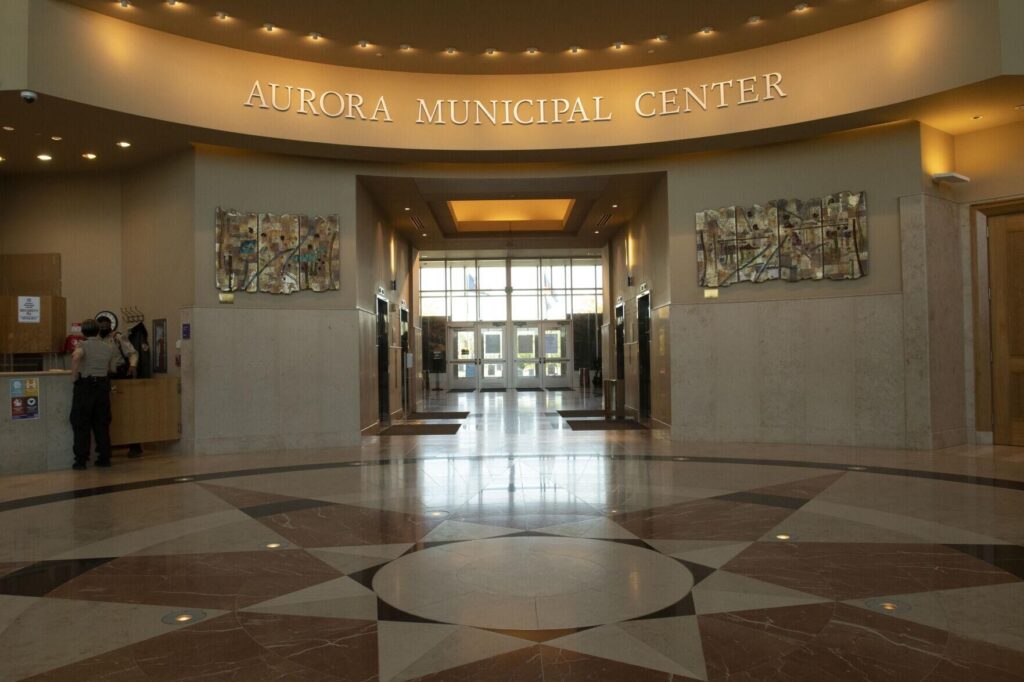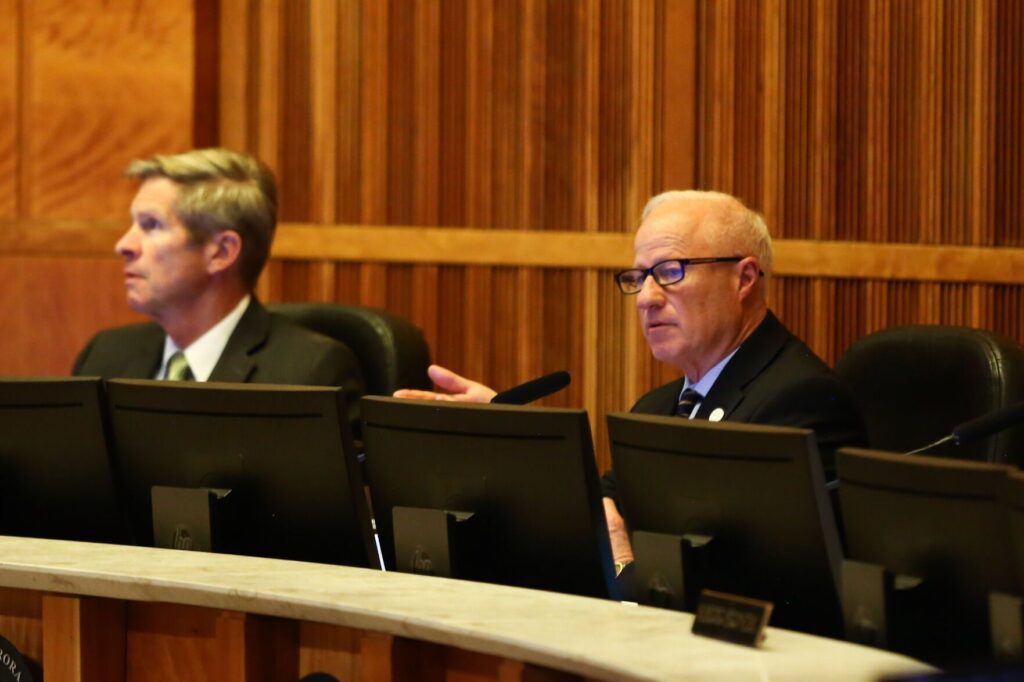Aurora police allowed to use facial recognition tech, lawmakers decide
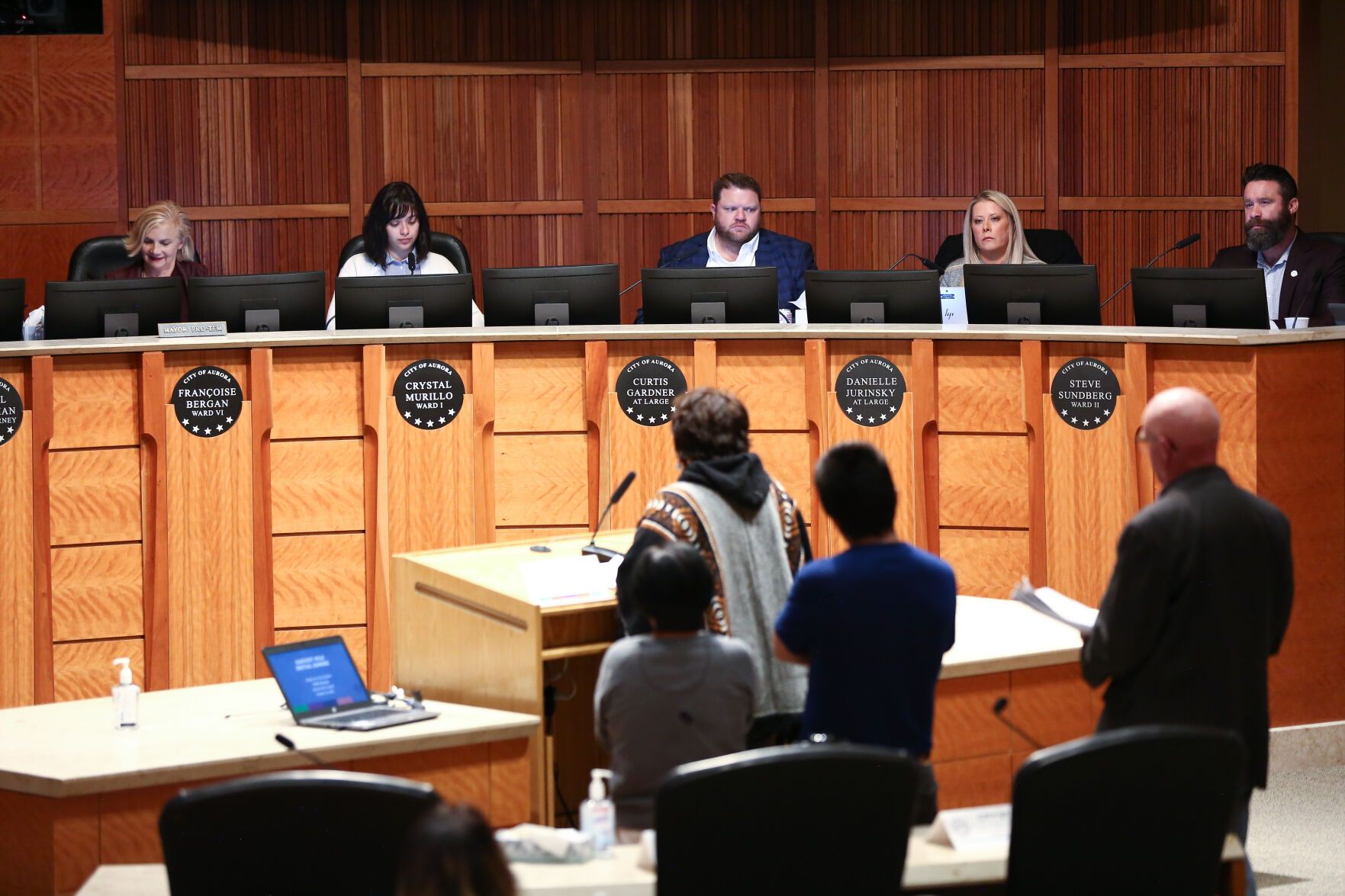
Aurora City Council gave Aurora Police Department permission to use facial recognition technology in a council meeting Monday night, with two councilmembers voting against it.
The Aurora Police Department’s facial recognition technology would give police opportunities to enhance productivity, crime solvability, effectiveness and safety, according to council documents.
Councilmembers Alison Coombs and Ruben Medina voted against allowing police to use the technology, with Coombs expressing concern about one of the companies police would use.
Clearview AI, which Aurora Police would use for facial recognition to help identify suspects, has faced several lawsuits, including one in Illinois, for unlawful facial recognition practices.
Aurora’s city attorney countered that the company has since changed its practices.
Aurora Police Commander Chris Poppe said facial recognition technology would not allow police to detain somebody simply by a photo match, but would allow investigators to use the technology as they would fingerprint technology or eyewitness testimony — to guide investigations.
“The end goal is to get criminals prosecuted and bring justice to our victims,” Poppe said Monday. “Being a victim of a crime is life changing, but when the victim knows that the crime has been solved, it’s equally life changing.”
In 2022, Senate Bill 22-113 laid out rules for law enforcement agencies that want to use facial recognition. Per the bill, APD has to have permission from the council to implement it.
The department is also required to hold at least three public meetings to hear community feedback and consider any issues raised at the meetings.
On APD’s website, there is a webpage about the department’s facial recognition use proposal, including a public feedback link.
As cameras go up in more places, including peoples’ homes and in stores, video collection has become part of police crime scene operations, Poppe said. Facial recognition would help them use video technology to their advantage.
“Cameras are everywhere, and oftentimes we have the benefit of having a criminal captured on some kind of film, either doing the crime or arriving or after,” Poppe said in a study session in early October.
Authorized uses of facial recognition technology include the following, as stated by council documents:
- Supporting law enforcement in critical incident responses
- A reasonable suspicion that an identifiable person committed or plans to commit a crime
- Active or ongoing criminal investigations
- Mitigating imminent threats to health or safety
- Assisting in identification of a person without capacity to identify themselves
- Investigating tips and leads
- Assisting in the identification of potential witnesses or victims of violent crime
Unauthorized uses include to harass or intimidate someone, to violate constitutional rights, for civil immigration enforcement, or for ongoing surveillance or persistent tracking without a court order like a search warrant, Poppe said.
They are looking at two different vendors: Lumen and Clearview AI.
Aurora police are already working with Lumen, which is a system that can compare a single “probe” image against criminal justice record images, and Clearview AI, which uses machine-learning facial recognition to search uploaded “probe” images against a database of more than 30 billion publicly available images.
Councilmember Alison Coombs expressed concern about Clearview AI, saying the company has been involved in multiple lawsuits for not following the law when it comes to data sales.
City Attorney Pete Schulte said the company has since changed their practices, but Coombs is concerned that they did not follow established laws to begin with, she said.
Any police official granted use of the facial recognition software would go through training, which would include face comparison and identification training and facial recognition investigation training.
Training would cost more than $170,000 over the next three years, according to Poppe.






